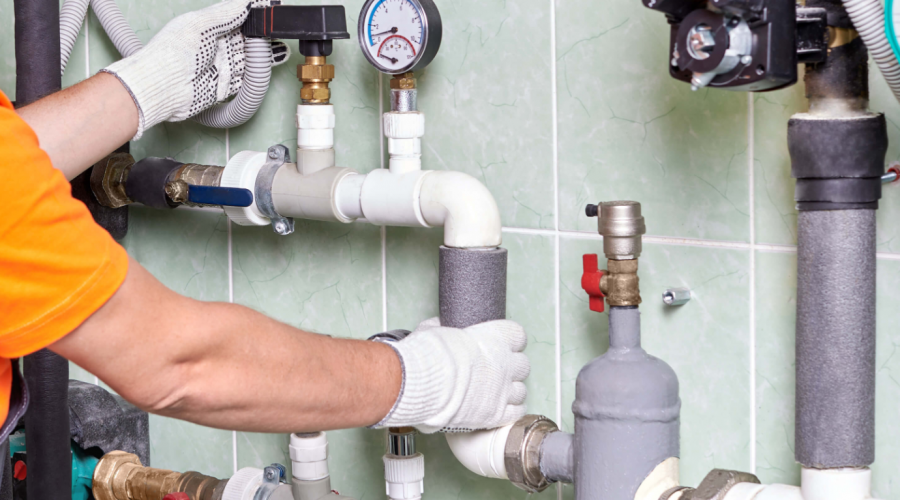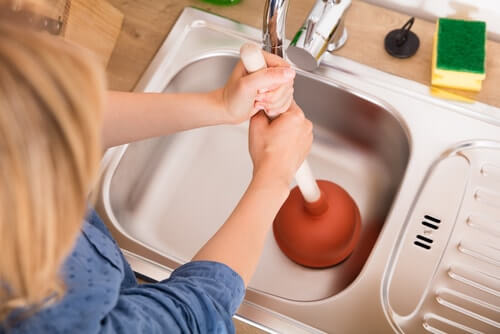Essential Emergency Plumbing Tips to Apply Until Help Arrives
Essential Emergency Plumbing Tips to Apply Until Help Arrives
Blog Article
They are making a few good observations regarding Plumbing Emergencies: Tips on What To Do Before in general in this article just below.

Pipes emergency situations can strike at any time, triggering tension and possible damages to your home. Whether it's a ruptured pipe, a clogged drainpipe, or a leaking tap, understanding how to take care of the situation till a professional plumbing professional shows up can save you from additional complications. This post offers essential emergency pipes suggestions to aid you alleviate damage and gain back control during a plumbing dilemma.
Turn Off the Water Supply
The initial step in any type of plumbing emergency situation is to shut down the supply of water. For local problems, such as a leaking tap or toilet, switch off the shutoff near the fixture. When it comes to a major leakage or burst pipeline, find your home's main water shut-off shutoff and transform it off right away. Knowing the location of these shutoffs in advance can save valuable time throughout an emergency.
Address Small Leakages with Momentary Repairs
Small leaks can promptly end up being considerable problems if left unchecked. Make use of these short-lived repairs up until professional help gets here:
While these repairs aren't irreversible, they can assist minimize water loss and damages.
Unclog Drains Pipes Securely
A clogged up drain can be an aggravating and messy problem. Here's just how to tackle it:
If these approaches don't function, prevent using too much pressure, as it may aggravate the blockage.
Handle Overflowing Toilets
An overflowing commode can trigger immediate chaos. Right here's what you need to do:
Shut down Your Hot Water Heater
In certain emergency situations, such as a ruptured pipe, it's a good idea to shut down your hot water heater. This avoids getting too hot or damages to the unit when water stops streaming. Switch off the power supply to the hot water heater (electric or gas) and let it cool off to stay clear of potential risks.
Briefly Quit a Ruptured Pipeline
A burst pipeline can bring about significant water damage in minutes. To alleviate the problem:
Call an expert plumbing professional immediately to deal with the issue permanently.
Take Care Of Frozen Piping Carefully
In colder climates, frozen pipelines are a common emergency. If you believe an icy pipeline:
Prevent More Damages
Taking fast action to minimize damages can conserve you time and money in the long run. Right here's how:
. Have an Emergency Pipes Kit
Prepare a fundamental pipes emergency set to handle small issues successfully. Your kit ought to include:
Having these devices on hand can make a considerable distinction in your ability to handle emergency situations.
Know When to Call a Specialist.
While quick fixes can help briefly, particular pipes issues need prompt professional attention. Call a plumbing professional if:.
Promptly calling a specialist ensures the issue is solved appropriately and avoids additional difficulties.
Conclusion.
Pipes emergencies can be overwhelming, yet with the ideal understanding and devices, you can take care of the scenario effectively until help arrives. By shutting off the water system, addressing small leaks, and making use of short-lived fixes, you can minimize damages and keep your home safe. Bear in mind, these tips are temporary solutions; always speak with a certified plumbing technician to take care of the root cause of the problem. Preparation and quick thinking are your finest allies in any kind of pipes emergency.
Expert Tips for Emergency Plumbing Repairs
Plumbing emergencies can be incredibly stressful and inconvenient. Whether it’s a burst pipe, a clogged drain, or a leaky faucet, these common plumbing emergencies need immediate attention to prevent further damage to your home. But before you panic, it’s important to understand the basics of plumbing repairs and the steps you can take to address these emergencies. In this article, we will share some expert tips to help you navigate through these situations and minimize potential water damage.
Identifying Common Plumbing Emergencies
Leaky pipes and faucets Clogged drains and toilets Burst pipes Low water pressure Water heater problems Essential Tools for Plumbing Repairs
Plunger: Useful for unclogging toilets and drains Adjustable wrench: Needed for tightening or loosening nuts and bolts Pipe wrench: Ideal for gripping and turning pipes Tape measure: Necessary for accurate pipe measurements Plumber’s tape: Helps create watertight seals Understanding Emergency Plumbing Services
Emergency plumbing services are designed to provide immediate assistance for unexpected plumbing issues that can cause significant damage to your home, business, or health. These services are typically available 24/7 and are staffed by experienced plumbers who can quickly diagnose and repair a wide range of plumbing problems.
When a plumbing emergency strikes, time is of the essence. Whether it’s a burst pipe flooding your basement or a gas leak posing a serious risk, emergency plumbing services ensure that help is just a phone call away. These professionals are equipped with the tools and expertise to handle any situation, minimizing damage and restoring your plumbing system to proper working order.
What Constitutes a Plumbing Emergency?
Burst pipes or water supply lines: These can cause extensive water damage and need immediate repair to prevent flooding. Gas leaks or suspected gas leaks: Gas leaks are extremely dangerous and require prompt attention to avoid potential explosions or health hazards. Sewer backups or overflows: These can lead to unsanitary conditions and significant property damage. Clogged drains or toilets causing water to overflow: Overflowing water can damage floors, walls, and other structures. Leaks or water damage causing structural damage: Persistent leaks can weaken the structural integrity of your home or business. No hot water or heating: A lack of hot water can be more than an inconvenience, especially in colder months. Common Causes of Plumbing Emergencies
Aging or corroded pipes: Over time, pipes can deteriorate, leading to leaks or bursts. Improperly installed or maintained plumbing fixtures: Faulty installations or lack of maintenance can result in unexpected failures. Tree roots or other debris infiltrating your sewer line: Roots can grow into pipes, causing blockages and backups. Frozen pipes or water supply lines: In colder climates, pipes can freeze and burst, leading to significant water damage. High water pressure or sudden changes in water pressure: Excessive pressure can strain pipes and fixtures, causing them to fail. Natural disasters such as floods or earthquakes: These events can disrupt your plumbing system and cause severe damage. Steps to Minimize Water Damage
Locate the water shut-off valve: Knowing where the valve is can help you quickly cut off the water supply to the affected area. Turn off the water heater: If there’s a risk of water coming into contact with the heating element, make sure to turn off the water heater to avoid potential accidents. Open faucets and drain pipes: By opening faucets and drain pipes, you can relieve pressure and empty any standing water. Collect and contain water: Use towels, buckets, or bins to collect water and prevent it from spreading to other areas of your home. https://leecountyplumbingandwellservice.com/expert-tips-for-emergency-plumbing-repairs/

I discovered that blog posting on Plumbing Emergencies: Tips on What To Do Before while doing research the internet. Do you know about somebody else who is sincerely interested in the topic? Do not hesitate to share it. Thank-you for going through it.
Book Your Service Report this page